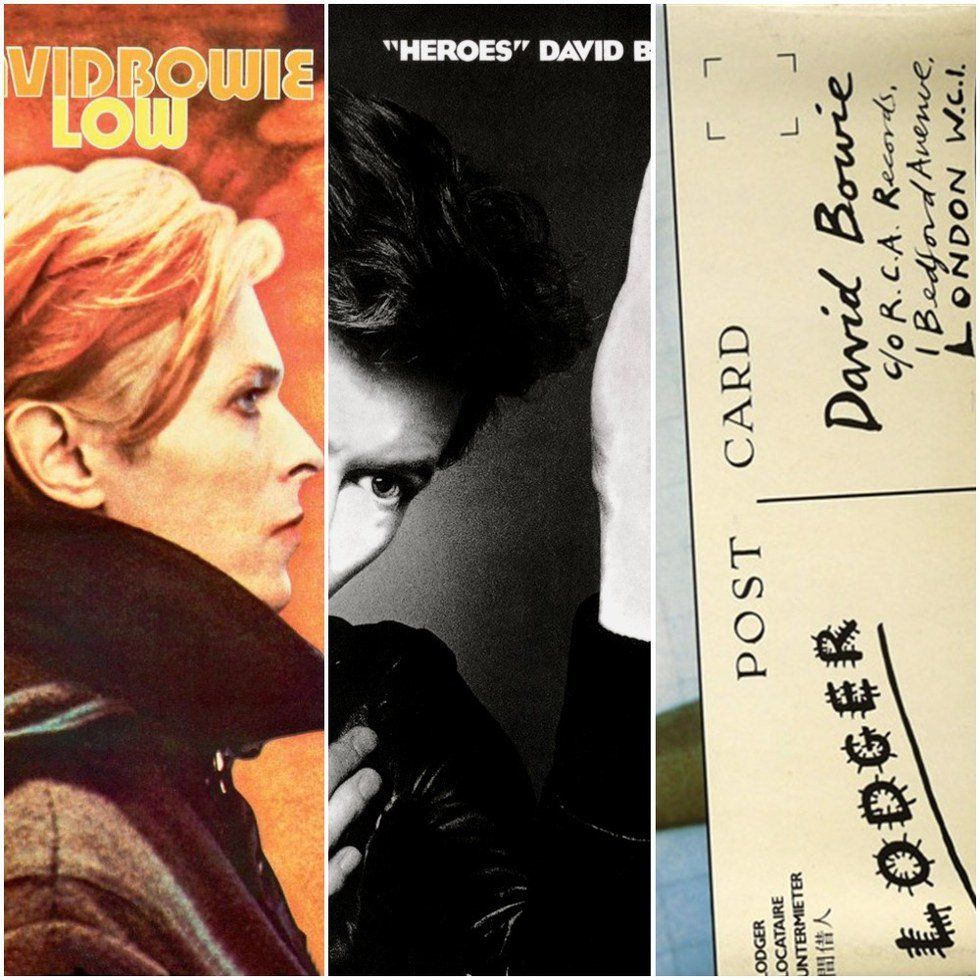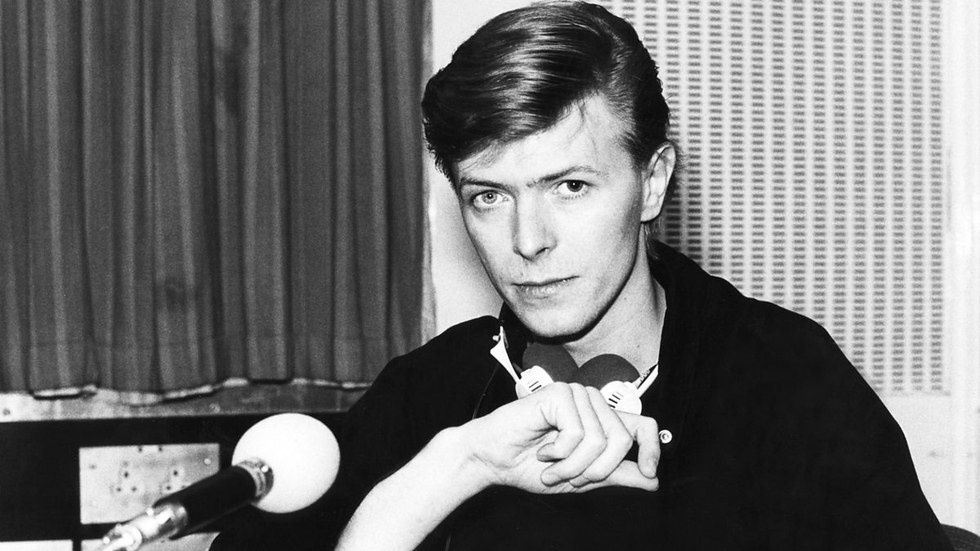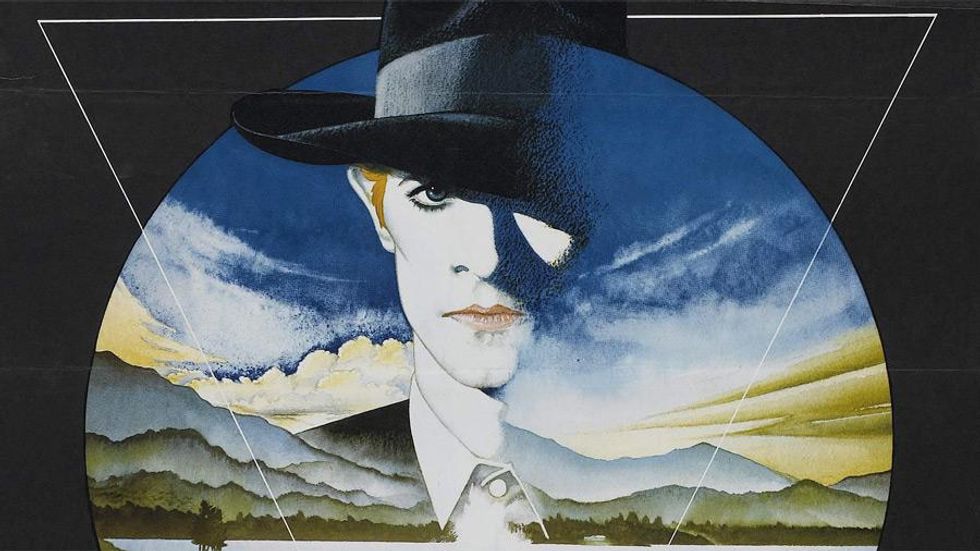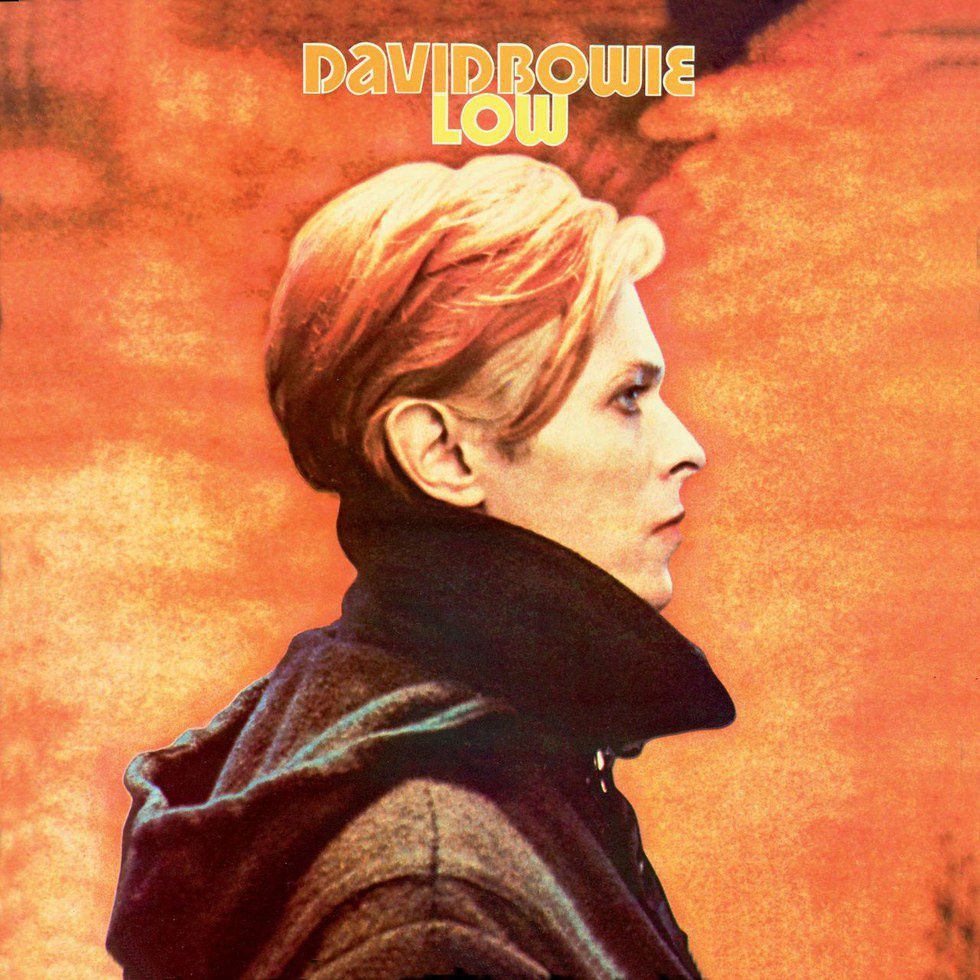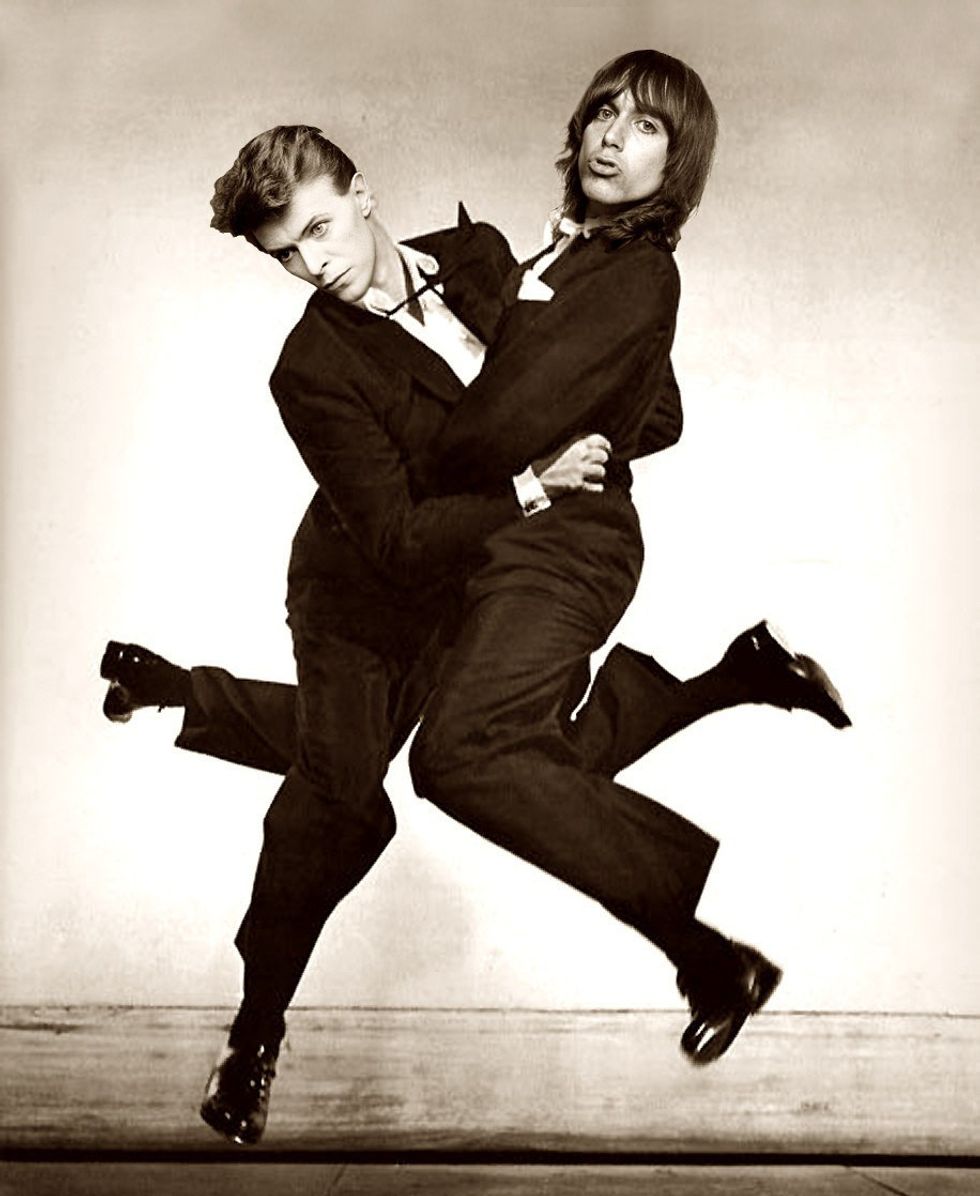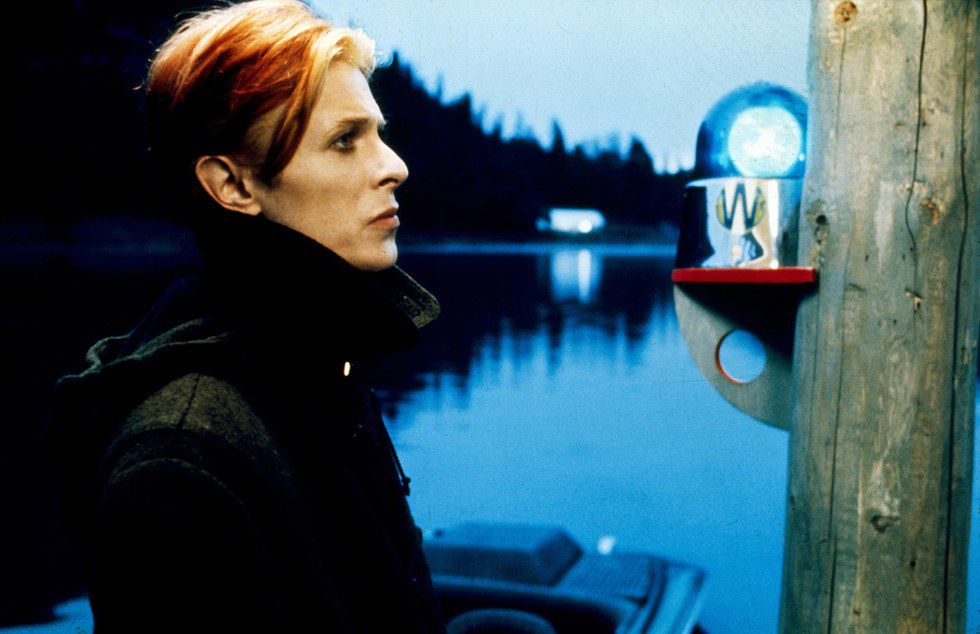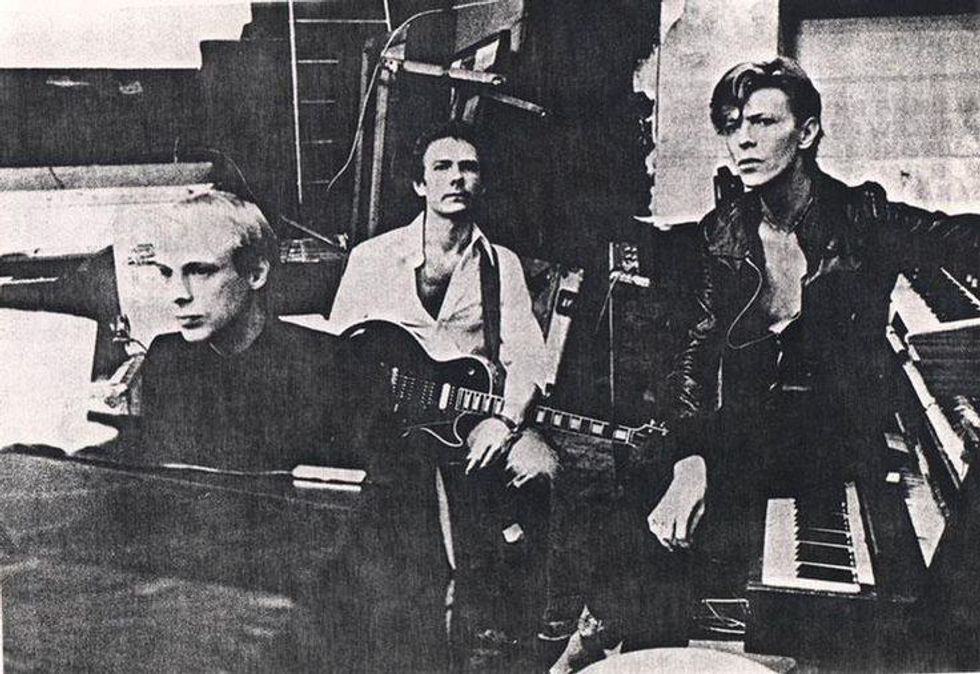David Bowie
The Berlin Trilogy (1976-1979)
Since his passing in January of this year, hundreds, perhaps thousands of writers have penned tributes and examinations into the massive and complex career of David Bowie: his 25 studio-albums, the soundtracks, countless roles in films, concert tours, paraphernalia and a permanent status as an important cultural icon.
This is an examination of a tiny fragment of the monumental achievements of Bowie, his Berlin Trilogy.
1976
1976 was a tumultuous year for Bowie. It began with the release of what many critics have cultivated as his greatest album, Station to Station, a complicated album; extremely commercial, and simultaneously entirely experimental and avant-garde.
While Bowie was already well established on the stadium-rock circuit because of his exploits during his Ziggy Stardust among many other achievements by this stage in his career, Station to Station brought him further, musically unique and challenging.
Station to Station was hugely successful with a hit single in "Golden Years" and subsequent mass touring for that album provided excellent cross-promotion for his starring role in Nicholas Roeg’s 1976 film The Man Who Fell to Earth.
While Bowie was seeing these massive artistic, critical and monetary successes, his personal life was in absolute shambles during this time period, one he would later recall as being “the worst of my life,” likely due to a crippling cocaine addiction that was worsening. He was originally slated to compose the soundtrack for The Man Who Fell to Earth, which he relinquished, the reasoning given being contractual obligation. Perhaps a more likely possibility was the constraints of his addiction, which was becoming increasingly problematic for him. His cocaine addiction was becoming so notorious, that Mick Jagger himself recalled once after an all-night cocaine binge, Bowie asking him if he could see the angels flying around outside the window.
The film was released in May and was one of 23 number-one hits at the box-office that year, grossing more than $11 Million. At the same time, Bowie was commencing his Isotar tour in support of Station to Station, a 64-show tour that saw him play in 11 countries, a grueling but highly acclaimed series of concerts.
The tour was marred in controversy: Bowie was arrested for marijuana possession in Rochester NY, in April alongside Iggy Pop, following a show in New Haven. Additionally, he consistently made headlines for controversial, bizarre and often radical remarks regarding Hitler and fascism, as well as a photograph published by NME that depicts Bowie mid-wave, in what was misinterpreted as a Nazi salute.
Bowie made the decision in mid-to-late 1976 to move to Switzerland, where he and then-wife Angie bought a chalet in Bonlay, Montreux in the canton of Vaud. His chalet was within a 5-minute drive of Mountain Studios, the recording studio made famous by Queen in the following decade, a recording studio that would become essential to Bowie himself later on, but not for a few years as well. For the moment, this Swiss retreat offered him financial haven from looming hefty taxes back in California, as well as emotional comfort and distance from the cocaine culture that haunted him back in Los Angeles.
And then, Bowie, in the autumn of 1976, amidst that terrible cocaine addiction and developing present troubled marriage, found himself retreating once again, this time from his Swiss home to West Germany, in Berlin, where he would live in an apartment with Iggy Pop, in Schönenberg. It was there, he began the first of the Berlin trifecta, a trinity of records that would be, some of his greatest work, certainly his most ambitious.
'Low'
Low’s origins can be traced back within the unheard sketches of the original The Man Who Fell to Earth soundtrack that Bowie was going to orchestrate. This can be seen as an accurate the jumping on point for the more minimalist style he would employ for much of the coming album, in combination perhaps, with the titular track from the last album, “Station to Station” which equally embodies the experimental aperture of Low.
Low was recorded, (ironically), in France mostly, the irony being it IS the first of the Berlin triptych. It was recorded in the autumn of 1976 and released the following January.
Bowie was really getting into the music scene in Berlin at the time. Krautrock was at its peak, with bands like Can, Tangerine Dream, Neu! and Kraftwerk putting out their best work. Tangerine Dream’s Phaedra and Stratosfear are particularly notable as having heavy influence on Bowie, being exemplary embodiments of Berlin School, the sub genre of electronic krautrock that Bowie was obsessed with.
The first half of Low is more soulful and pop-centric while the B-side is more electronic and ambient, four tracks largely instrumental and mostly ambient. While Tangerine Dream was very inspirational for Bowie, another gigantic influence, more essential to the Berlin Trilogy than anybody else, was Brian Eno.
Eno, a god of ambient music, considered by some to be the inventor of the genre, crafted much of the ambient music on Low alongside Bowie himself. “Warszawa”, which is co-written by Eno, is one of the albums finest moments.
More than any other krautrock, the Berlin trilogy would be influenced by the album Musik Von Harmonia by Harmonia, a quasi-supergroup trio made up of Neu! guitarist Michael Rother and members of the band Cluster. Eno and Bowie were fans, Eno in particular, so much so that he went on to record with the band, in September of 1976, directly leading up to the Low sessions. Those recording would make up the final Harmonia album Tracks and Traces which would not be released for many years.
It would be difficult, nay remiss, to discuss Lowwithout giving adequate acknowledgements to its spiritual twin album, The Idiot by art-punk rocker Iggy Pop, formerly of the band the Stooges, who was aforementioned in being Bowie's Berlin roommate and musical companion. Iggy Pop, like Bowie, was suffering from a bad drug addiction, heroin as it was. His was so bad that it had been a key highlight in the second break-up of the Stooges, which led him to Berlin.
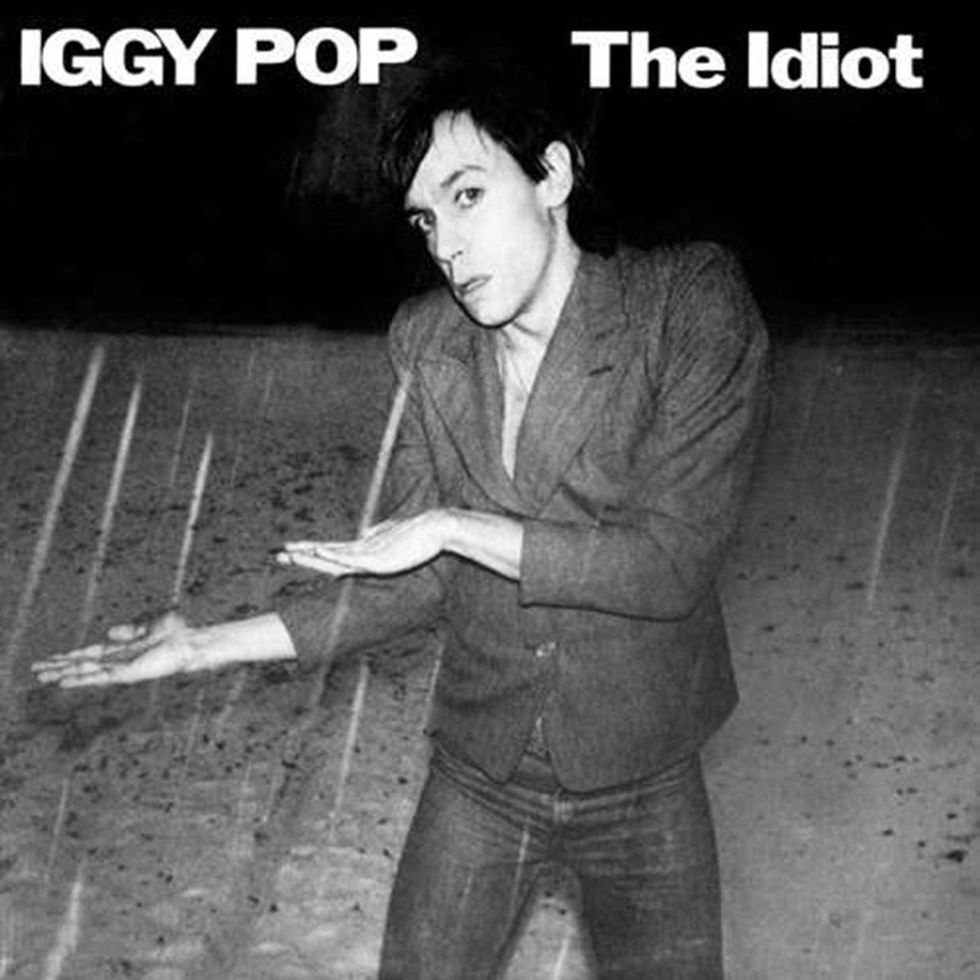
While The Idiot was an Iggy Pop record in name, it was very directed and obliquely Bowie in nature. Some of the tracks were rerecorded by Bowie, notably “Sister Midnight” and “China Girl” and used on future Bowie albums.
The Idiot was not a massive commercial success upon its release, but it did spark Iggy's solo career, his first efforts post-Stooges, and it received massive critical praise, and, in the years that have follows, has been lauded as a classic.
Working with Iggy Pop on The Idiot, and indeed, likely, living with him as well, certainly seemed to have helped Bowie expand creatively, with a lot of the sort of ideas he was curating on the Iggy Pop records manifesting over into the Low recordings in the following months.
Low clocks in at just under 40 minutes, 11 songs. It certainly continues musically, the direction Bowie began to steer towards with Station to Station, a more electronic-focused, ambient sound. The themes of his Thin White Duke persona remain—but fragmented. Low is not a David Bowie intent on reinventing himself once again, more focused on musical and personal survival than anything else.
“Subterraneans” highlights the end of the B-side with a sobering tribute to residents of East Berlin, the country still occupied by the Soviets at the time. Its subtle sax play brings things together solemnly with Bowie’s abstract fragmented lyricism and Eno’s best ambience of the album.
One of the only pre-Station to Station Bowie moments comes from “Always Crashing in The Same Car” which has been interpreted by critics to be alluding to Bob Dylan and his infamous motorcycle accident some years prior. Bowie seems almost envious of this sort of, excuse to retreat. But the sound here is certainly a retrospective one. It features a tight guitar solo from Ricky Gardiner, unfortunately a one-time-only Bowie collaborator. He would later compose and play the guitar solo on Iggy Pop’s “The Passenger” which has some fantastic riffing and most people recognize instantly from its many, many appearances in TV commercials.
“Speed of Life” does a superb job of bridging the gap, leading Bowie listeners from “Wild is the Wind” the closing track on Station to Station, into Low. The instrumental track, hints at all to come in the album.
The cover of the album is a manipulated and enhanced still from The Man Who Fell to Earth. Station to Station’s album art was also a still from the film, but that can be seen as direct cross-promotion. By the time Low was released, the only connection to the film from the previous year was a spiritual one. The choice of using this image is very important; it shows Bowie respecting his Thin White Duke era while also graciously and deliberately moving forward to a new era.
“Warszawa” is perhaps the best track on the album; it's the one you always come back to. The haunting tribute to the capital of Poland is chilling and wondrous. Eno shines on the song as its pianist and plays synth as well, Bowie’s vocals at the end of the song are among his best on the record, singing in Polish, the words and melody are lifted from a Polish folk choir. The result speaks for itself in its magnifying beauty.
Upon its release, Low was a commercial success, but was received — initially — rather poorly by mainstream critics, who praised the present pop sensibility of the record, but seemed hesitant or even irritated to acknowledge the genius of the experimental side of the record. It’s possible the record was just ahead of its time, or that rock critics were woeful for the more commercially-friendly Ziggy Stardust Bowie from before. Interestingly, UK critics praised the album and commended its artistic and experimental strides, it seems that mostly the American critics were having a more difficult time with the album. Rolling Stone in particular, seemed fairly displeased with Bowie’s artistic direction.
“His role playing long ago blew his detached mystique,” wrote Rolling Stone critic John Milward. “Low serves as a moderately interesting conduit through which a wider audience will be exposed to Bowie's latest heroes, and in this sense is an interesting addition to his recorded catalog.”
Some, adapting to this new electronic experimental Bowie, praised his ambition and vision:
“Conceptually Low is picking up where Station to Station left off: the western world’s enslavement to time and consequent devaluation of place,” wrote one NME critic. “Low is the ONLY contemporary rock album.” Decades later, NME would praise Low as the 14th greatest album of all time.
Next time, 1977 continues and Heroes is recorded and released, becoming the second in the Berlin Trilogy…



